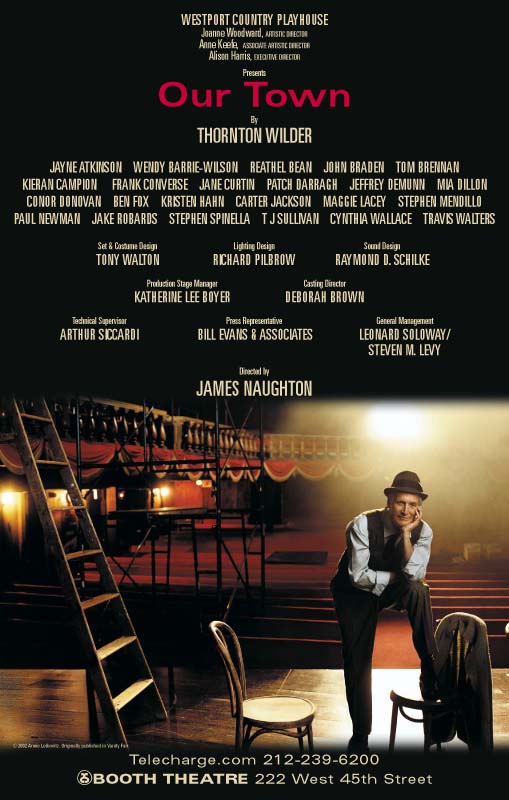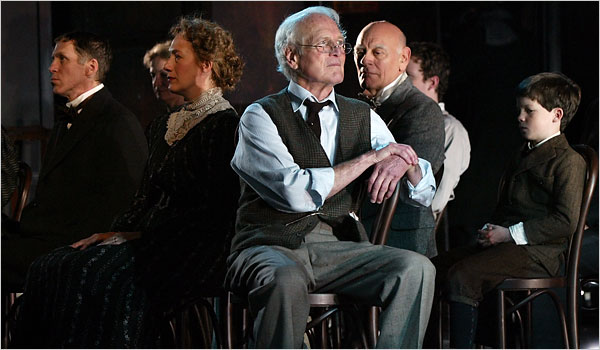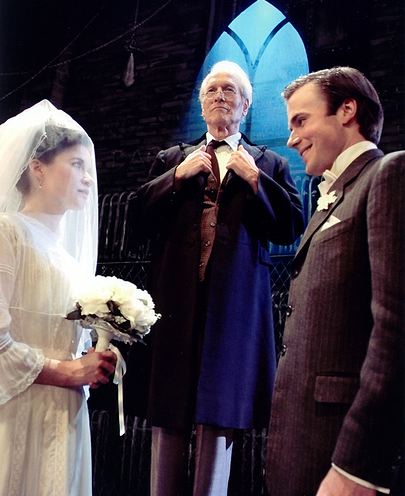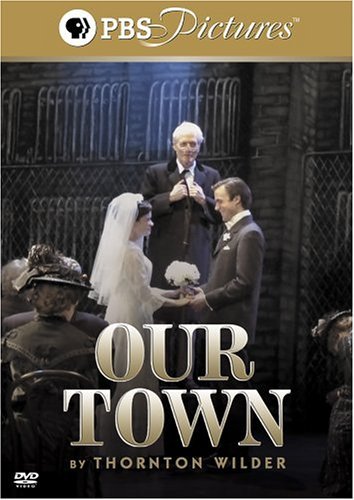
It's hard for any American to get through life without seeing at least one production of Thornton Wilder's Our Town. The play is a perennial favorite of high school drama departments and amateur theatrical companies, because it has a lot of parts (only one of which has a lot of lines), requires little scenery and almost always packs a punch, emotionally.
I must be one of the very few who managed to get through almost 60 years in this great land of ours without ever encountering it. My interest in it was aroused, however, by a report from Paul Zahl for this site on a celebrated production of the play done recently in New York. I put a couple of filmed versions of it in my Netflix queue and one of them showed up in my mailbox last week — a videotaped record of a production by the Westport Country Playhouse starring Paul Newman as the Stage Manager (the part with a lot of lines.)
The Stage Manager sets the scenes for us, comments on them — he's a busier version of the Shakespearean chorus. The setting of the play is a small town in New Hampshire in the first decades of the 20th Century, the characters are “ordinary” American folk. The subject is the passing of time — which is to say, death, towards which all time on this earth trends.

The play asks, in effect, what will remain of us, what will our lives have added up to, in the gaze of Eternity? In Grover's Corners, where the play unfolds, we know it will not be anything grand, or out of the ordinary, for anybody. All virtues there, and all vices, all successes and all failures, are modest in the great scheme of things.
Of course, one is bound to reflect if there are any virtues, vices, successes or failures which are not modest in the great scheme of things — in the greatest scheme of things, in cosmic history. When our sun has burned itself out, when the universe returns to the nothingness from which it emerged, as some believe it inevitably will, what difference will Shakespeare or Napoleon have made, not to mention you and I?

Wilder offers an answer to this question. It is mystical, of course, as all such answers must be, but it is not facile, not made up of off-the-rack concepts of an intellectual or philosophical or theological sort. It's flavored with Christian imagery but also calls to mind imagery from Buddhism and even Nietzche. It can't be reduced to words, but one can say that it's more minatory than consolatory.
It might not change your life, but it could easily change the way you look at your life.

The videotaped version of the Westport Country Playhouse production, available on DVD, is very well done. Newman is superb — I think it might be his best performance ever. The Stage Manager could easily come off as a bit of a fuddy-duddy, but Newman brings a no-nonsense virility to the part which rivets our attention and cuts through what might at first seem like a flood of nostalgic sentimentality. Our Town is not a sentimental play, nor is it, except technically, a period piece — which is one reason that productions of it go on and on. Its purpose it to evoke the now — the eternal now, in which even death must take a supporting role.
Wilder suggests that we ought to start giving thanks for it now. Right now.
